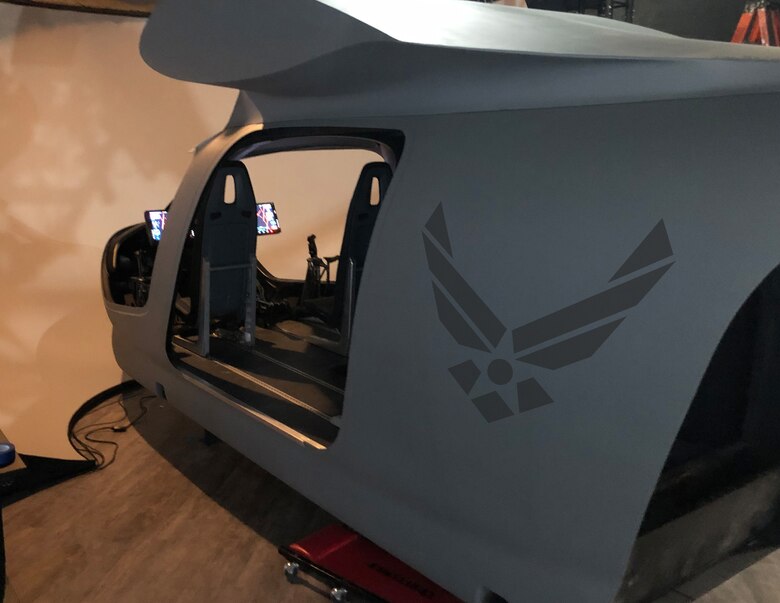The U.S. Air Force has awarded the first airworthiness approval for a manned electric aircraft to BETA Technologies, a partner in the AFWERX Agility Prime program. This enables BETA to begin flying its ALIA aircraft in the Agility Prime program. The airworthiness award from the Air Force is the latest milestone in BETA's test program after recently entering its next phase of flight testing.
"U.S. Air Force engineers spent more than a year examining BETA's ALIA aircraft, evaluating its design and flight capabilities against the demanding MIL-HDBK-516C standard," said Camron Guthrie from BETA. "U.S. Air Force personnel and subject matter experts evaluated the aircraft's design and maintenance requirements along with the company's operations and flight test plans.
"Electric aviation is a National Security priority and fortunately this was recognized early by the Air Force," said Kyle Clark, BETA's founder and CEO. "The speed and efficiency of the Air Force Agility Prime program to support sustainable electric aviation has been remarkable. The people and expertise that the Air Force has brought to the electric aviation industry and specifically our ALIA program is accelerating the development of incredibly capable, safe and reliable aircraft."
Under a new contract to be signed in June, the Air Force will have access to the first of its kind, manned 7,000-pound class electric aircraft, and first of their kind immersive electric vertical takeoff and landing simulators located in Washington, D.C. and Springfield, Ohio.
"This agreement will enable Air Force acquisition professionals to make data driven decisions informed by real assessments of military utility," said Col. Nathan Diller, AFWERX director.
BETA's aircraft simulation and training facilities allow Air Force pilots and engineers to experience the future of electric vertical flight by rehearsing and testing the ALIA aircraft in a variety of potential mission sets and scenarios. The advanced urban air mobility technology simulator near the Air Force Research Laboratory in Springfield, Ohio, provides easy access to the Air Force's greatest technical experts and acquisition professionals. The Washington, D.C. facility provides an ideal venue for future operational concept developers across the Air Force, joint force, and interagency to conduct research, assessing the opportunities of the electrified future. These state-of-the-art simulators are physics based and include weather, emergency handling, and mission scenarios with multiple aircraft.
Agility Prime seeks to expand technology transition paths to accelerate emerging dual-use markets by leveraging government resources for rapid and affordable fielding. In a first-of-a-kind arrangement, AFRL engineers used unique equipment and analysis capabilities to conduct structural testing on the ALIA aircraft. This valuable data will advance the flight test program safely while providing valuable insight to the Air Force on a unique and novel aircraft design.
"Agility Prime is about creating a new path to adopt advanced technologies in the Department of Defense by working with innovative companies like BETA in ways that enable new markets," Diller said. "The engineering, test, and acquisition professionals in Air Force Materiel Command have phenomenal expertise to help accelerate this and other emerging markets."
In March, BETA advanced to the next phase of its flight testing program, completing an interstate flight with ALIA from its Plattsburgh, New York, home airport test facility to the company's headquarters near Burlington International Airport in Vermont. To abide by Federal Aviation Agency protocols concerning the flight of experimental aircraft beyond designated test areas, BETA completed rigorous testing to ensure reliable and predictable aircraft performance. In the same week ALIA flew its first interstate flight, BETA also set a new record for range and altitude in ALIA of 130 nautical miles and 8,000 feet respectively.
BETA added to its growing customer list securing agreements with BLADE and UPS for its ALIA aircraft and charging stations. BETA partners now span medical, logistics, defense and passenger segments.

BETA Technology's ALIA simulator in BETA's Washington, D.C. facility is a fully immersive eVTOL flight simulator and training facility. The simulator allows Air Force pilots and engineers to experience the future of electric vertical flight by rehearsing and testing the ALIA aircraft in a variety of potential mission sets and scenarios. (U.S. Air Force courtesy photo)






